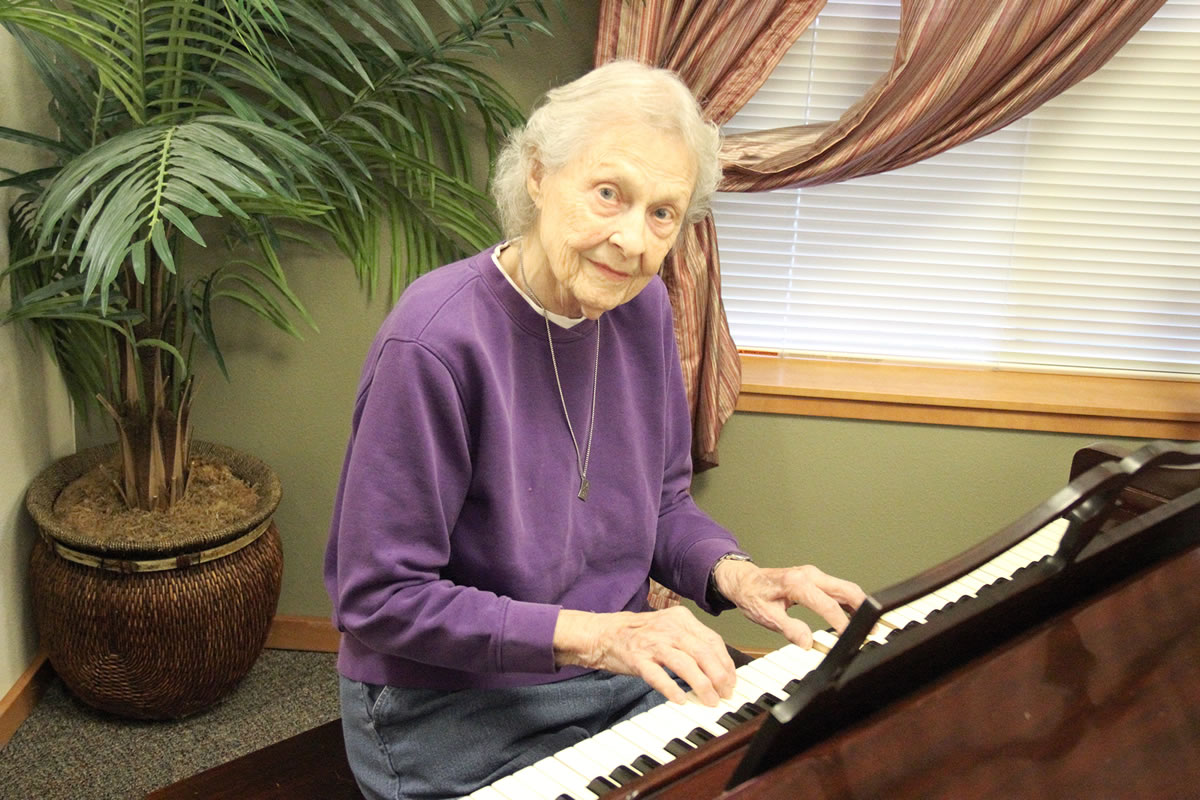There’s a new bridge across the language gap at Walnut Grove Senior Apartments: music.
The 65-unit complex near the Westfield Vancouver mall is owned and managed by the Vancouver Housing Authority, and about half of the population there speaks English, according to social service coordinator Cheryl Ayers-Steen. The other half speaks Russian or Ukrainian for the most part, she said. So the place tends to be a bit socially fragmented by nature.
There’s no lack of trying, though, and during the holiday season, the whole community does get together for a special meal where they share their favorite dishes — and talk and laugh and reach across the language barrier as much as possible, Ayers-Steen said.
This year it’ll be a lot more possible, and a lot more fun, than ever before. That’s because a piece of advanced communication technology — a piano — arrived Nov. 19 in the Walnut Grove community room.
“This piano will bring music to our lives,” said resident Betty Pennington, 92. “It will provide residents an opportunity to practice and perform for friends, neighbors and relatives at our many social gatherings and get-togethers.”
It’s just a used piano — a Wurlitzer spinet — but that’s no problem. In fact it’s exactly what the School of Piano Technology for the Blind had in mind when it launched its piano adoption program earlier this year.
Too many decent, used pianos fail to find new homes and end up in the landfill, said Cheri Martin, executive director of what’s known as the Piano Hospital. That’s a Vancouver institution that trains blind students to be piano tuners and technicians, and also repairs and sells used instruments from its showroom at 2510 E. Evergreen Blvd.
In September, the Piano Hospital also started brokering connections between donors — who want to get rid of used pianos but hate to see them trashed — and worthy recipients in the community. That could mean retirement homes or schools or social service agencies, or even just low-income families with musical passion but without the means to tickle some ivories.
Pennington, who lobbied hard for an instrument at Walnut Grove after reading about the piano adoption program in The Columbian, is now just one among many who are plopping down on the bench to play, Ayers-Steen said — including “residents we didn’t know had any piano experience at all. It’s really been a joy to hear various styles of music.”
Because it costs about $500 to evaluate, move and tune up even a used piano, Martin said, the Piano Hospital is always looking for “piano patrons,” that is, people who can donate dollars to help the process along. The Piano Hospital wants to hear from people with used pianos to donate, too.
To help, visit pianotuningschool.org or contact Martin at 360-693-1511 or Cherim@pianotuningschool.org.
Walnut Grove’s piano was donated by Gwen Marsh, a local chiropractor, and comes “at a really great time,” Ayers-Steen said. “This piano will foster yet another opportunity where language is not an obstacle and people can bond over the appreciation of music.”
Bits ‘n’ Pieces appears Fridays and Saturdays. If you have a story you’d like to share, email bits@columbian.com.





